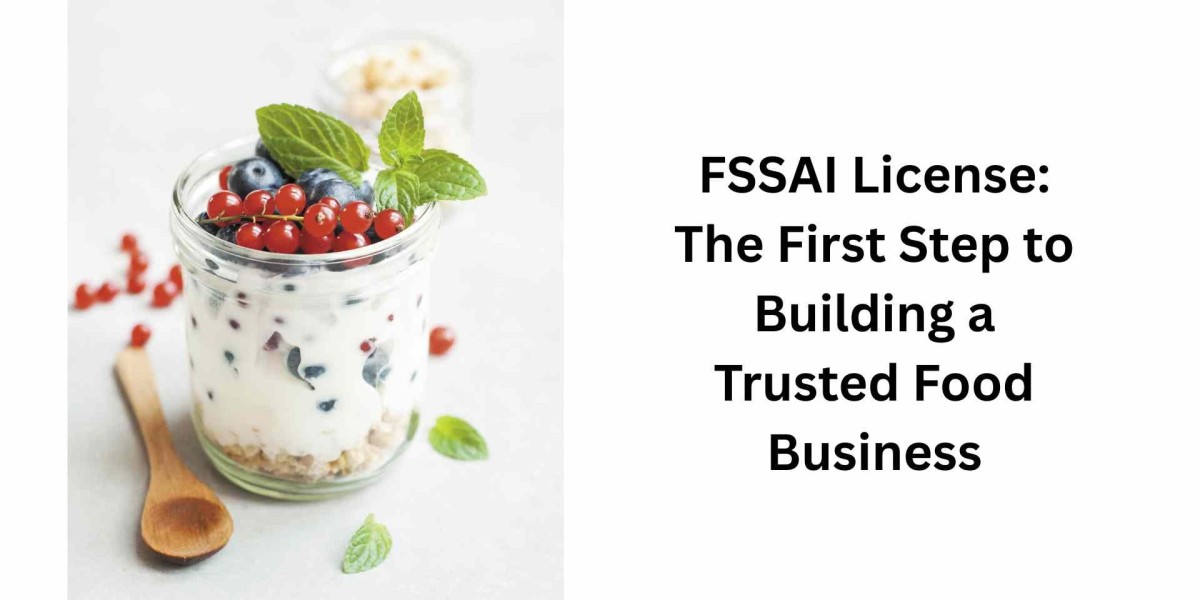In today’s competitive and health-conscious market, trust is the most vital ingredient in any successful food business. Whether you run a street-side stall, a full-fledged restaurant, a home kitchen, or a large-scale food manufacturing unit, customers expect and deserve safe, hygienic, and high-quality food. That trust begins with a foundational step, obtaining an FSSAI license. FSSAI, or the Food Safety and Standards Authority of India, is a regulatory body established under the Food Safety and Standards Act, 2006. It oversees the safety, manufacturing, storage, distribution, sale, and import of food products to ensure they meet essential health standards. Getting FSSAI registered is not just a legal obligation, it’s a mark of credibility, quality assurance, and a commitment to consumer welfare.
Why is the FSSAI License Important?
1. Legal Compliance
Every food business operator (FBO) in India is required to register with FSSAI. Operating without a valid license can result in hefty fines or even imprisonment. Whether you’re a small vendor or a multinational food chain, an FSSAI license ensures your operations are recognized and monitored by the appropriate authority.
2. Builds Consumer Trust
A food license signals to customers that you prioritize food safety and hygiene. Seeing a valid FSSAI number on food packaging or in an establishment gives customers confidence that what they’re consuming meets approved quality standards.
3. Enhances Brand Reputation
Businesses that display their FSSAI license proudly often find it easier to build a reputable brand. In a market where quality and transparency drive customer loyalty, FSSAI certification gives you an edge. It shows that your brand follows proper processes, uses safe ingredients, and complies with regulatory requirements.
4. Market Expansion and Business Growth
An FSSAI license is often required when scaling up, whether that means entering new markets, supplying to retailers, selling online through platforms like Amazon or Flipkart, or exporting food products. Distributors and partners usually ask for valid licenses before initiating any collaboration.
5. Facilitates Easy Loan and Investment Approvals
Investors and banks often consider FSSAI compliance as a benchmark for business legitimacy. If you're seeking funding, a loan, or even partnership opportunities, having your FSSAI license in place makes your business more attractive and trustworthy.
Types of FSSAI Licenses
FSSAI issues three types of licenses based on the scale and nature of your business:
Basic Registration – For small businesses with an annual turnover of up to ₹12 lakh.
State License – For medium-sized businesses with an annual turnover between ₹12 lakh and ₹20 crore.
Central License – For large businesses, importers, and those operating in multiple states with a turnover exceeding ₹20 crore.
Each type requires different documentation and eligibility, but the application process has been streamlined significantly via the FSSAI online portal.
FSSAI Registration Process – Simplified
Here’s a quick overview of how to apply for an FSSAI license:
1. Access the FSSAI Registration Portal
Start by visiting the official FSSAI registration website through your internet browser. This is the primary platform for submitting your application.
2. Fill Out the Online Application Form
Provide accurate details such as your name, type of food business, business location, and the category of food products you handle. You’ll also need to upload essential documents like your PAN card and address proof.
3. Carefully Review Before Submission
Double-check every field for accuracy. Confirm that your business details and document uploads are correct to avoid delays or rejections.
4. Make the Required Payment
Proceed to the payment gateway and pay the applicable registration fee. The amount depends on the category of license you're applying for: Basic, State, or Central.
5. Verify Your Identity Through OTP
Once the form is submitted, you'll receive a one-time password (OTP) on your registered mobile number or email address. Enter this OTP to authenticate your identity and continue the process.
6. Await Site Inspection (If Applicable)
For certain types of licenses, especially those involving larger operations, FSSAI officials may visit your premises to assess hygiene and operational standards.
7. Download Your FSSAI License
After your application is approved and all verifications are complete, you’ll receive your FSSAI license via email. You can also log in to the portal to download it for your records and display.
Consequences of Not Registering
Ignoring FSSAI registration isn't just bad for business, it can be legally dangerous. Penalties can include:
Fines up to ₹5 lakh for selling unsafe food
Business closure orders
Legal prosecution in cases of serious health hazards
Aside from the legal risks, a lack of FSSAI registration can erode public trust and limit growth opportunities significantly.
Note: You can also apply for Tatkal FSSAI Registration from our website
Conclusion
The FSSAI license isn’t just a piece of paper, it’s a symbol of your commitment to food safety, quality control, and ethical business practices. It shows that you care about your consumers and are willing to comply with national health and hygiene standards. So, if you're planning to start or already run a food business in India, make FSSAI registration your first step. It could be the small legal requirement that makes a big difference in your brand’s success and credibility.








